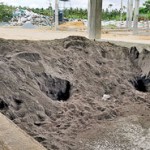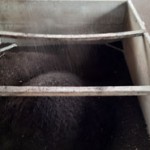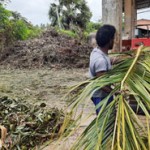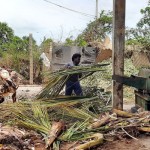News
Homegrown fertiliser output rises
View(s):With the government reiterating that the chemical fertiliser ban will continue for years to come, the demand for compost and other organic fertiliser is on the rise – especially in the North.
Before the ban on chemical fertiliser came into effect, a lorry load of livestock compost sold between Rs 20,000 to Rs 30,000 – but now it has skyrocketed to Rs 60,000.
The recent demand for compost in the market saw more people, particularly unemployed young graduates and even government officials, turn towards organic farming as a source of [additional] income and even start livestock farming depending on their capacity. According to data from the Jaffna District Secretariat, 410,000 livestock are currently in farms or residences in the district.
Recently, the Jaffna Municipal Council (JMC) opened an organic fertiliser manufacturing plant in Kallundai, and increased its production due to local demand as the District consists of at least 400,000 acres of farming land. The JMC plant sells one kilo of organic fertiliser at Rs 14. JMC Commissioner R T Jeyaseelan told the Sunday Times that the demand for locally manufactured fertiliser spiked from April onwards to 10,845 kg from February (1160 kg). In June, the plant sold 41,530 kg of fertiliser.
“Farmers from all over are approaching us for fertiliser, but our production is limited, with limited resources. Even farmers from Anuradhapura purchase fertiliser from us,” Commissioner Jeyaseelan said.
As authorities commenced operations to manufacture organic fertiliser to meet increasing local demand, farmers also started their own initiatives with available resources.
S Sriskandarajah (59), a farmer from Kopay, engaged in vegetable farming in Punnalaikattuvan on his 15 parappu (150 perches) land said that since it became clear that chemical fertiliser will not be allowed, he too started his own organic compost site with livestock manure and other scraps from daily consumption at home.
Story and pix by N Lohathayalan





